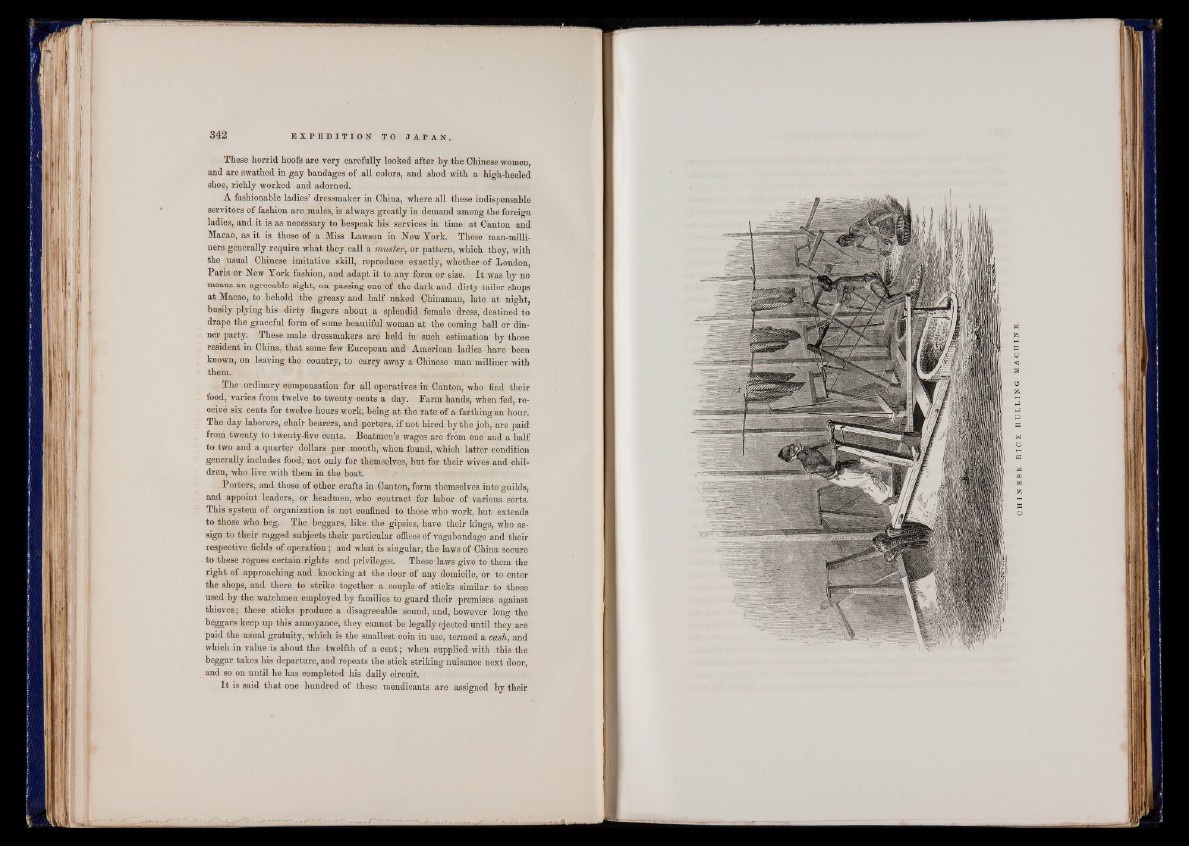
These horrid hoofs are very carefully looked after by the Chinese women,
and are swathed in gay bandages of all colors, and shod with a high-heeled
shoe, richly worked and adorned.
A fashionable ladies’ dressmaker in China, where all these indispensable
servitors of fashion are males, is always greatly in demand among the foreign
ladies, and it is as necessary to bespeak his servioes in time at Canton and
Macao, as it is those of a Miss Lawson in New York. These man-milli-
ners generally require what they call a muster, or pattern, which they, with
the usual Chinese imitative skill, reproduce exactly, whether of London,
Paris or New York fashion, and adapt it to any form or size. I t was by no
means an agreeable sight, on passing one of the dark and dirty tailor shops
at Macao, to behold the greasy and half naked Chinaman, late at night,
busily plying his dirty fingers about a splendid female dress, destined to
drape the graceful form of some beautiful woman at the coming ball or dinner
party. These male dressmakers are held in such estimation by those
resident in China, that some few European and American ladies have been
known, on leaving the country, to carry away a Chinese man milliner with
them.
The ordinary compensation for all operatives in Canton, who find their
food, varies from twelve to twenty cents a day. Farm hands, when fed, receive
six cents for twelve hours work, being at the rate of a farthing an hour.
The day laborers, chair bearers, and porters, if not hired by the job, are paid
from twenty to twenty-five Cents. Boatmen’s wages are from one and a half
to two and a quarter dollars per month, when found, which latter condition
generally includes food, not only for themselves, but for their wives and children,
who live with them in the boat.
Porters, and those of other crafts in Canton, form themselves into guilds,
and appoint leaders, or headmen, who contract for labor of various sorts.
This system of organization is not confined to those who work, but extends
to those who beg. The beggars, like the gipsies, have their kings, who assign
to their ragged subjects their particular offices of vagabondage and their
respective fields of operation; and what is singular, the laws of China secure
to these rogues certain, rights and privileges. These laws give to them the
right of approaching and knocking at the door of any domicile, or to enter
the shops, and there to strike together a couple of sticks similar to those
used by the watchmen employed by families to guard their premises against
thieves; these sticks produce a disagreeable sound, and, however long the
beggars keep up this annoyance, they cannot be legally ejected until they are
paid the usual gratuity, which is the smallest coin in use, termed a cash, and
which in value is about the twelfth of a cent; when supplied with this the
beggar takes his departure, and repeats the stick striking nuisance next door,
and so on until he has completed his daily circuit.
I t is said that one hundred of these mendicants are assigned by their